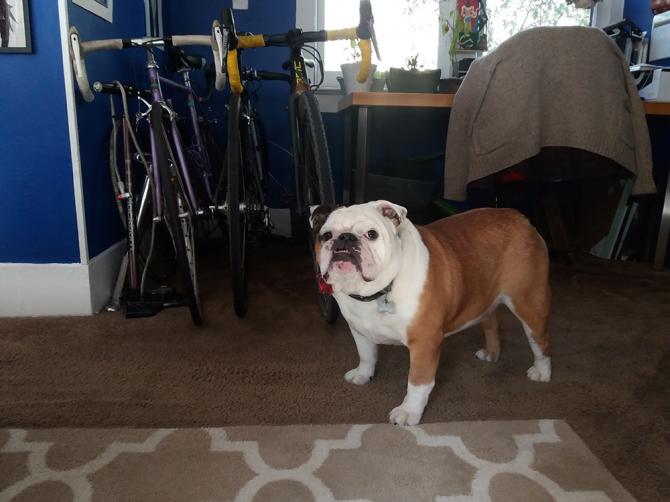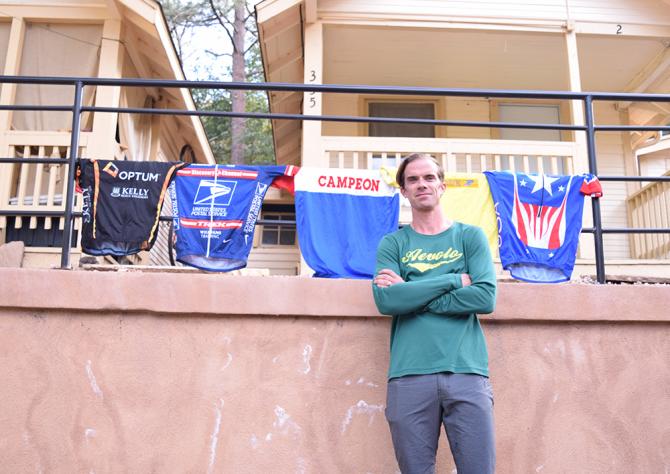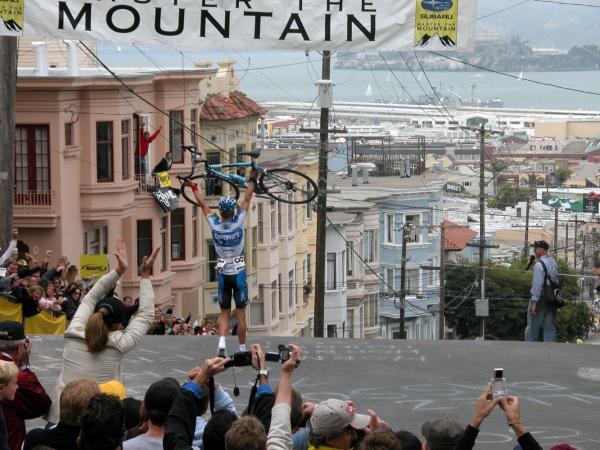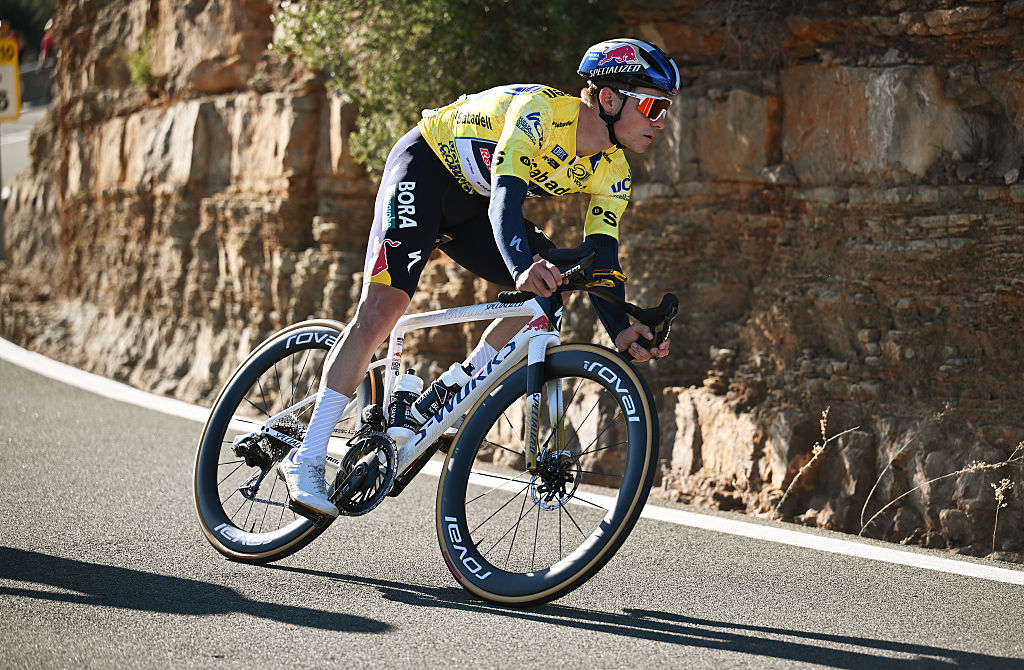Michael Creed: Fighting back against depression
Former rider shares his struggles, his suicide attempt and how he's building a brighter future
The latest race content, interviews, features, reviews and expert buying guides, direct to your inbox!
You are now subscribed
Your newsletter sign-up was successful
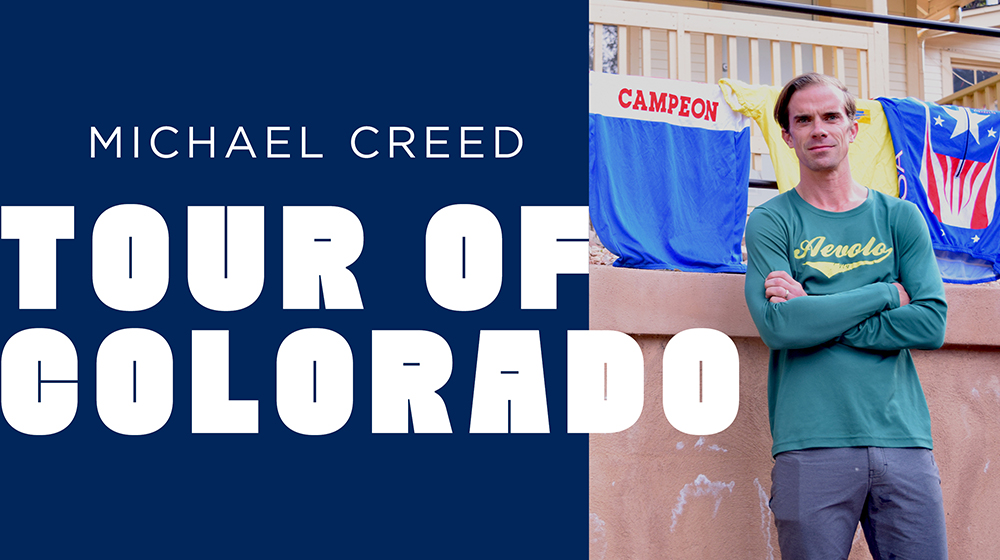
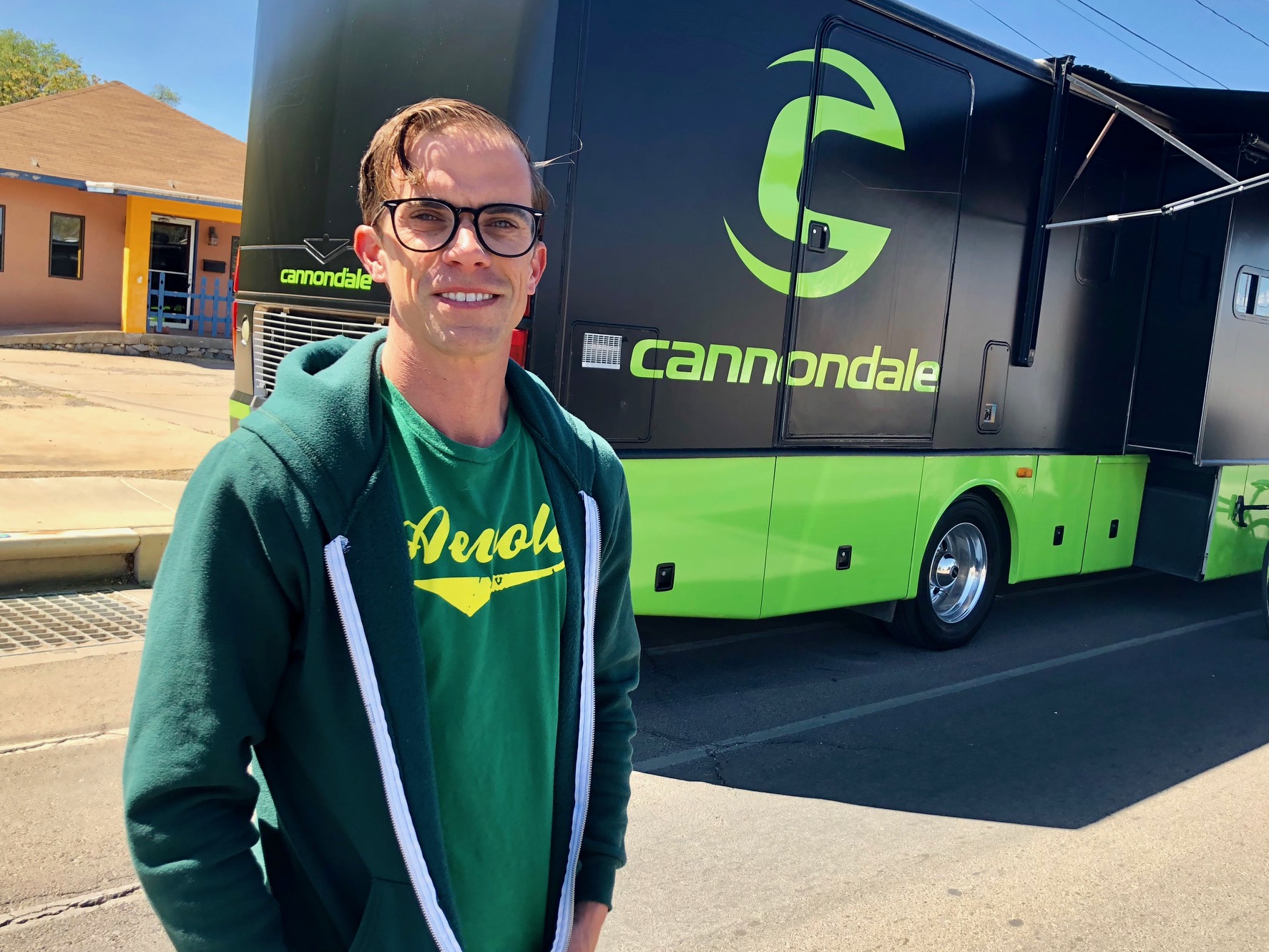
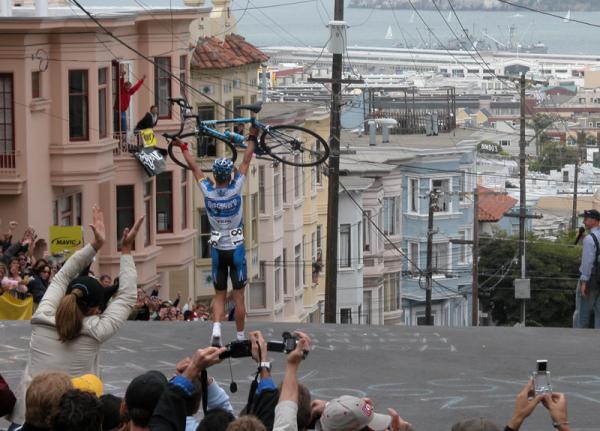
Five years ago, Michael Creed hung up his wheels and ended his career as a professional cyclist. From there he moved seamlessly into team management - first with SmartStop, then the US Paralympic Cycling Team, before landing on his feet at Aevolo, where he now runs one of the most successful under-23 programmes on the US domestic scene.
On the surface, his life reads like an untroubled tale of a young athlete living his dream before sidestepping into a well-suited career of mentorship. Under the surface, however, lies a complex and darker story involving bouts of severe depression and crippling loneliness, physical struggles, anxiety and a harrowing suicide attempt, before Creed finally sought the help he needed and turned his life around.
Manitou Springs sits on the outskirts of the much larger and more built-up town of Colorado Springs. If the latter's drab and stifling office blocks, which house the US Anti-Doping Agency (USADA) and USA Cycling, represent the stuffier older brother, then Manitou is the cool, younger sister, surfing through life at a gentler pace. Put it this way, if you were going to hang out with either sibling, you'd choose the sister every time.
Creed's apartment sits at the base of the picturesque Pike's Peak, a few meandering blocks from the middle of Manitou, with its sleepy shopping strip and cozy bars nestled into a small metropolis of arty-crafty outlets.
Creed's place is like any other on his street, except for the Aevolo team car that sits outside and the rack of bikes that adorn the rear entrance and the steps leading up to the second floor.
Once inside, it doesn't take long to realise what Creed has going for him. Charlie, a three-year-old British bulldog – named after former British pro Charly Wegelius, but with an incorrect spelling after Creed messed up the dog's documents – comes to the door and offers a warm greeting. He retreats to his bed in an apparent sign that he is not willing to share his 3x3-foot cage. Shame. It was a three-hour drive down from Floyd Landis' Leadville-based home, and Creed's whole apartment invites you to relax.
The only noise that punctuates the tranquility is Caitlin, Creed's wife, who clips along the hardwood floors in her cycling shoes as she readies for a mid-morning ride. Creed is busily making up her bottles, but he offers me a seat and a drink, and it's a chance to scope out the place a little further.
The latest race content, interviews, features, reviews and expert buying guides, direct to your inbox!
On one wall there's a poster of comedian Doug Stanhope. On the fridge there's a photo of Creed from his junior days. He's pictured with an unknown elderly woman as they smile at each other, while there's an eclectic collection of cycling books on the shelf above Charlie's place of slumber.
The dog is already asleep by the time Creed waves Caitlin goodbye, and the pair of us set off on a mini-hike in the Manitou hills and along the surrounding trails.
It's the first time I've seen Creed since the 2012 Worlds in Valkenburg, when he raced the team time trial for Team Optum p/b Kelly Benefit Strategies. We only spoke briefly that day, but we've been in touch over the years – briefly losing contact when he began working at USOC before pickings things back up around a year or so ago.
Our last serious conversation came around 2016, when Creed opened up about his suicide attempt and his battle with depression. If you're wondering whether you read the piece, don't bother, because it was never published – I didn't finish it – and the transcript sat on a desktop gathering dust in the intervening years.
I didn't write up the interview for a number of reasons, and we'll come to those later, but right now it's just good to see Creed. As we plough our way along an old railway line, he talks about married life, his development project, his affection for Colorado, and parts of his past.
"I'm doing good now, but it took a long time," he says. "2017 was a good year for me, but it took until about late 2016 to really find that stability and identity of the person that I am and the person that I'm happy with, and [to realise] that this is a sustainable lifestyle. It doesn't sound nice or romantic to say it's sustainable, but when you're a person like me, and you're in my head, then it's a really nice place to be."
Creed's dog Charlie welcomes Cyclingnews to Colorado
From US Postal to the US scene
To bring you up to speed, Creed came through the ranks as one of the most promising riders in North America. He secured a number of national titles at the junior and under-23 levels – across a number of disciplines – and finished a fine fifth in the junior men's time trial at the 1998 Worlds in Bordeaux, France.
He was a protégé in a country that was in the midst of the Lance Armstrong indulgence, and when the 23-year-old Creed was offered a contract on Armstrong's US Postal team at the start of 2004, almost anything looked possible for the future of Michael Duwayne Creed.
Sport is littered with athletes who never reach their full potential, though, and with Creed, it seemed like he was never in control of his career. US Postal released him after two fallow seasons, and he returned to the US to ride on a string of domestic squads.
"I'd won the most national titles as a junior and as an under-23 rider. I definitely believed in that hype, too, and I definitely thought that I was going to be a lot better than I turned out," Creed says as we make it back from the hike.
When he came back to the US, he saw the move as racing's loss, rather than his own.
"I had to make the soundbites good for the people at home seeing me on group rides and shore up my story, but I really just thought that it would be fine. I thought I could go win the Tour of California the next year and it would be great. That's literally what I thought. No one told me to think that – I just did.
"But reality lasts longer than denial, right?" he adds. "You can only trick yourself so many times before professional sport reminds."
In his own words, Creed's career was "a bit of a flop". He struggled with injuries; hip and back problems plagued his senior racing years to the point where he could no longer train, and on the few occasions he was able to hit peak form, another physical setback was just around the corner.
"The back issues were the main things that held me back. When my hips and back were in alignment, then bike racing was pretty easy, and I enjoyed it. I felt very confident in myself," he says.
Creed admits that he buried his head in the sand when it came to his physical problems, and that he didn't seek the medical help to address his ailments. Unfortunately, the same could be said of his struggles with his mental health, too. Around the same time that he developed problems with his physical self, he was diagnosed with severe depression, but he carried on without really facing the matter until much later in his career.
"I had ways to ignore it before, but when I started to get older and cycling drifted for me, I started to become more aware of myself, and I became pretty convinced that I didn't like who I was.
"There have been a few really low points. There are times when you become paralysed by depression, that your body feels the weight of a human tonne. And there's this crippling anxiety all at the same time," says Creed.
"That just doesn't make sense. It's like if you were chained to the bed, and your DNA is telling you to get up and go, but your brain is questioning why you should bother."
Like so many athletes, sport was Creed's outlet – both physically and mentally – and, with cycling, he could try to channel his unadulterated focus. However, as his hips and back began to worsen, so did Creed's ability to function. The teams he rode for became smaller and smaller and, by mid-2013, he was done.
"There were times when I would make it 20 minutes out of the door and then I'd just come home because everything that once gave me joy in life didn't give me joy. Cycling was my tool to reset myself, and it hurt when that feeling went away," he says.
When he eventually stopped racing, Creed was left with a career that had spanned three decades but didn't provide the return it once promised. That in itself was just one of the pieces of his struggles. Mental health is not a topic that can be pigeonholed or easily categorised by one episode, and it can often be determined by an amalgamation of different symptoms and a series of events. Some events, however, stand out more than others.
"I very much remember the time that I realised I wasn't going to win a World Championship," Creed says as we sit down in his living room.
"I know that sounds like a hilarious sentence, but you have to understand that from the time I was 12 years old, I had always believed that I was going to win a World Championship. I would get so excited for the junior Worlds, and the under-23 Worlds, and even the senior Worlds. I had been top five three times, and I really believed that I was going to be a world champion one day. I very much remember having that moment when Rock Racing were folding, and they weren't paying anymore. I remember thinking, 'If I could get on a bigger team next year, with one big ride then I could do it'. I remember being on the stairs of my house and I just broke down. I realised that it wasn't going to happen. It's an incredibly small thing, but it meant a lot at that time. I didn't want it to be real, and I didn't want to be weak. I'd never been in that position before.
"This is embarrassing to say, but I used to have dreams of winning the World Championships, and, in my dreams, I would be so relieved because it wasn't a dream. I'd tell myself, 'Thank God this isn't a dream'. And then I'd wake up. When I was 14, I'd go around riding bikes as if I was Jeff Evanshine because he had won the [junior] World Championships when they were in Colorado Springs. I'd go around, racing the same course, and pretend to be him. An American winning in America."
Those dreams would remain just that, and one might think that retiring from racing would have affected Creed in an adverse way. Without his outlet, how would he cope? In the first few months, however, the transition worked. Instead of anxiety came a wave of relief. Self-doubt was replaced with confidence, and civil life seemed to sit well. Creed got a brief job as a barista, and then at SRM [manufacturer of cycling power meters], where he put together boxes on the shop floor. It was manual labour, but it was just what he needed at the time.
"I was a better person [after I retired]. I was happier for a while," Creed says. "I worked at SRM for a little bit when I was trying to figure out what to do, and I was literally building boxes. I remember the looks on people's faces, who were almost apologetic about my job and trying to assure me that it was fine, but I thought that it was so funny because it was the first time in a long time that I was doing a job that I knew I could do. Whereas for 10 or 15 years of cycling I had no idea how that day's training session was going to go because of my injury problems.
"After I stopped, it didn't matter if I woke up sick, hungover or tired because I knew that I could do my job. That was such a great feeling, to know that I wasn't going to disappoint or come up short or talk around it and make things OK."
Creed with some of the jerseys he collected during his racing career
Facing mental illness head on
Creed could only maintain that status for so long. Mental illness can be cyclical, and by the time he returned to cycling via management of the SmartStop team, his struggles had once more come to the surface.
Relationships began to fall apart, both professionally and personally, with a messy divorce from his first wife and several friendships burnt to cinders. Creed was going off the rails, and fast, and the new position at SmartStop – although looking like a good option at the time – would only accelerate matters. Directing was the new outlet, but it would only take him so far.
"I was going through a lot of personal things, and I did a really good job of avoiding dealing with them. I got to the point where I couldn't escape it anymore," he says.
Creed shifts back into his chair, and we approach the subject of his attempted suicide. It's a story he has only shared with a handful of people.
"I wanted directing to be the release and having the best team to be the next release. All of a sudden, I was tasked with the responsibility of running a training camp. It was a hard camp, but we pulled it off. We were so tired. It was the first time I'd experienced this post-event comedown. That emptiness. That void. I had felt it before in races, but I could deal with it because I was riding. I thought that feeling had died with cycling, but when this camp ended in Tucson, it came flooding back to me. I thought that whatever was going to follow from the camp was going to be a disappointment. I had stress, and I had learned from my hip and back problems that it might not get better, and I transferred that line of thinking to directing.
"I didn't sleep all night, and then I made this crazy excuse that I was going to go on a day trip. I took the team car, drove to Mexico, and I woke up in the hospital with no real recollection."
The disturbing details of what happened in Mexico need not be published, but, after discharging himself from the hospital, Creed re-entered the US and went back to work as if the previous day's events were normal.
"Somehow I found the team car and drove back like nothing had happened. I just pretended like nothing was wrong. When you want to pretend like nothing is wrong, then it's really, really easy.
"You're so embarrassed with yourself that you almost see it as an aberration, and that it won't happen again. There's a point when you can use the bathroom mirror just to brush your teeth, and you don't have to look into it sometimes. The problems come when you stand there and have a conversation with yourself. You can avoid that for a very long time.
"It's not like I wanted to die," Creed first told me back in 2016. "It was more that I wanted to disappear for good. Does that make sense? In that moment, it feels relieving. It's hard to explain. It doesn't feel like the true act of violence that it really is, or the true act of selfishness that it really is."
Anyone looking in from the outside would have hoped that Creed would have used Mexico as the trigger to seek help, but mental health is anything but simplistic or rational. As SmartStop fell apart due to financial problems, so did Creed's stability, while he continued to avoid the warning signs around him.
"I was a very selfish person and doing everything I could not to look in the mirror. In AA terms, I was dry drunk. I did that as long as I could, and then the SmartStop thing started to fold, and I got into crazy debt because I was bankrolling the team. I had got to this point of peak grossness."
Creed's life received a jolt when his grandmother's health rapidly deteriorated. Throughout her life, she had been Creed's biggest support, and she cheered him through his cycling career from junior to elite, no matter the result or the circumstances. His relationship with her had been pivotal, especially during his younger years when his relationship with his mother fell apart.
"My grandma was the only one who could bring everyone together. She was the only one who could bark orders, and she was my number one, biggest fan, and with everything I did, she could always find an excuse and tell me how great it was all going to be," he says.
"She got sick and required this operation, but during the operation, she got infected, and things went downhill really quick. Some time in early 2016, she didn't have much time left, and we were all in this group together, and she went around saying nice things to everyone. But she didn't say anything nice to me. She told me that she didn't like the way I was living my life and that she was worried for me. Those were the last things she ever said to me. Everyone else got sweet things. As much as I'd like to say that I turned my life around that very second, I didn't," Creed says as he recounts what was a deeply emotional time for him.
Creed salutes the crowd atop Fillmore Street at the 2005 Barclay's Global Investors Grand Prix in San Francisco
Learning to be human
It would take Creed a few more weeks to find the resolve to seek help. The death of his grandmother and her final words may not have been the exact moment that brought a sea change, but they were a catalyst. He moved houses and changed jobs, but, most importantly of all, he sought medical help.
"The thing with depression is that the diagnosis could be anything from manic depressive to bipolar. There are a number of ways in which depression can be framed, but, in my case, it was severe depression," Creed explains.
He had already taken medication, and while that took out the lows, it also took away the highs. In 2016 he told me: "There were options, and I took pills at some level, but at the end of the day, what are you other than your brain chemistry? That's your personality, and that's how you identify yourself, and it seems wrong to fuck with that, and I wouldn't be comfortable with it. It doesn't seem right."
The treatment Creed required most was counselling. Leaning on someone and sharing his feelings and fears with a trained professional helped him become well-versed in the triggers and signals that would spark an episode of depression, and as his treatment progressed, so did his understanding of his mental state. Or, as he puts it now in franker terms, he "learned how to be a human".
"It took a long time to find the right therapist. That search almost killed all my motivation, but he helped me turn things around. He talked like a real person to me, instead of just mirroring and asking me questions. He wasn't just this disappointed stranger, and I found it refreshing."
Support groups also played their part, and as Creed settled into life in Manitou Springs and struck up a relationship with Caitlin, he began to find the stability he'd talked about earlier on our hike. For Creed, group therapy sessions opened up a platform in which he could analyse his actions and rationalise them with a greater sense of clarity. Not every element of the group sessions were applicable, but there was enough in their routine and context to help.
"We've talked about different support groups that you would go to when you feel suicidal, and one of the things that always boggled my mind, that I couldn't get my head around, was that they would go around the group and talk about how to forgive yourself, and just move on. It just seemed so crazy to me because I felt like I got there by forgiving myself. I got there by doing things and saying I wouldn't do them again – and then doing them again.
"If the forgiveness thing works for you, that's fine, but for me what was effective was acknowledging my past and those chapters of my life, and instead of looking for forgiveness from people with the snap of the fingers, I just began to understand that you have to do more good, and that maybe by the time you're done with this, the people that you lied to…they would see that you did have regret and that you were sorry because you changed your life. It's almost unrecognisable from the person that you were before.
"If I just moved on and forgave myself, then the people that I lied to, what would they see?" Creed continues. "Would they see that just because you were walking around with a smile on your face that you'd started a whole new life? So, for me, I had to become OK with my past and not act like it was someone else."
Caitlin – and don't forget Charlie – have all played their parts in Creed's continued recovery. Creed retells the moment he opened his soul to his future wife, and how she didn't flinch when he described what he labels his worst traits. He's mid-story when she returns back from her ride, and her arrival wakes Charlie from his slumber, and he toddles up to her for some fuss as Creed looks on with pride.
"What's stability?" I ask.
"It's to have the life that you want, that you can keep up, and that won't implode or fall over on itself," he says almost instantly, with his eyes still on Caitlin and Charlie.
"You find a partner who loves the lifestyle that you lead as much as you do, and you're not hurting anyone with your lifestyle. You're finding a life. It's funny because sometimes I think some people find it so easy, and that it's just innate to them. People seem that way, and they don't seem to struggle the way I did."
The lessons and experiences that Creed has been through have been brutal and only truly understandable for someone who has either gone through something similar or been close to someone who has.
However, they also provide Creed with the platform to educate riders that come through his development team. Not that it's his main role, but he can spot signs of unhappiness and anxiety better than most in fledgling riders, and therefore educate them on life as a struggling professional rider.
"There are different aspects to the sport and different roles that I think I'm handy at," he says. "I don't know if there's one that I'm perfect for, but directing is right up there. I'm a reasonable coach, and I can be a reasonable sports psychiatrist, but I think I can be a combination of all those things. But I definitely want kids to deal with reality, and to take those tactics from racing and bring them into real life. That they teach themselves to look in the bathroom mirror and analyse themselves without cruelty and self-flagellation."
There is still a stigma around mental health, and no more so than in professional sport where any sign of weakness is seen as just that: weakness.
"If anything, it's worse in sports because you're meant to be this totally in-control, awesome alpha male with a bit of macho mixed in," says Creed. "I find it hard to believe that there are not more athletes who deal with depression because of the let-down when you go to a race, you're on the road for a week, there's pressure and adrenaline and then, after you go home, it's all gone. Going from those extremes is tough, and it can give you this really vacuous feeling that things don't matter."
It all matters, because Creed certainly isn't the only member of the cycling community to suffer from mental health-related issues.
As for why I didn't finish this story back in 2016, fear was probably the biggest factor. Fear that Creed wasn't through the worst of his ordeals; fear that the subject matter was too raw; fear that I wouldn't be able to do justice to what Creed and others go through.
After saying our goodbyes, I head for the car and set off for the next stop in Colorado. I recall the image on the fridge of a young, care-free and content Creed, which is as vivid as any of the traumatic stories he has told me. It suddenly dawns on me that the elderly woman in the photo is his grandma.
After telling me about her death and his road to recovery, Creed told me that, "I can maybe honour her by making some sort of change, if not for me, then for her". He has certainly done that.
When I left Landis in Leadville, I was full of hope for his future, and it's the same with Creed. But there's also the added hope that if a rider is going through any of the traumas he faced, then they too can realise that help is at hand. They just have to do the hardest thing of all, and reach out for it.
If you would like to talk about any of the issues relating to this story, you can contact any of the following:
Daniel Benson was the Editor in Chief at Cyclingnews.com between 2008 and 2022. Based in the UK, he joined the Cyclingnews team in 2008 as the site's first UK-based Managing Editor. In that time, he reported on over a dozen editions of the Tour de France, several World Championships, the Tour Down Under, Spring Classics, and the London 2012 Olympic Games. With the help of the excellent editorial team, he ran the coverage on Cyclingnews and has interviewed leading figures in the sport including UCI Presidents and Tour de France winners.
